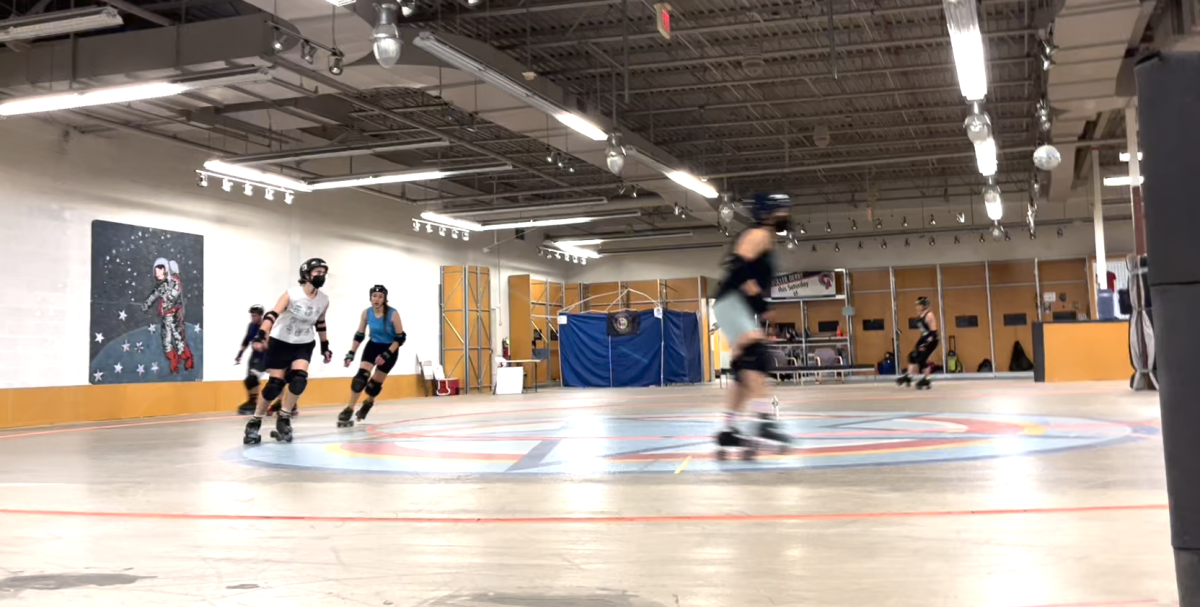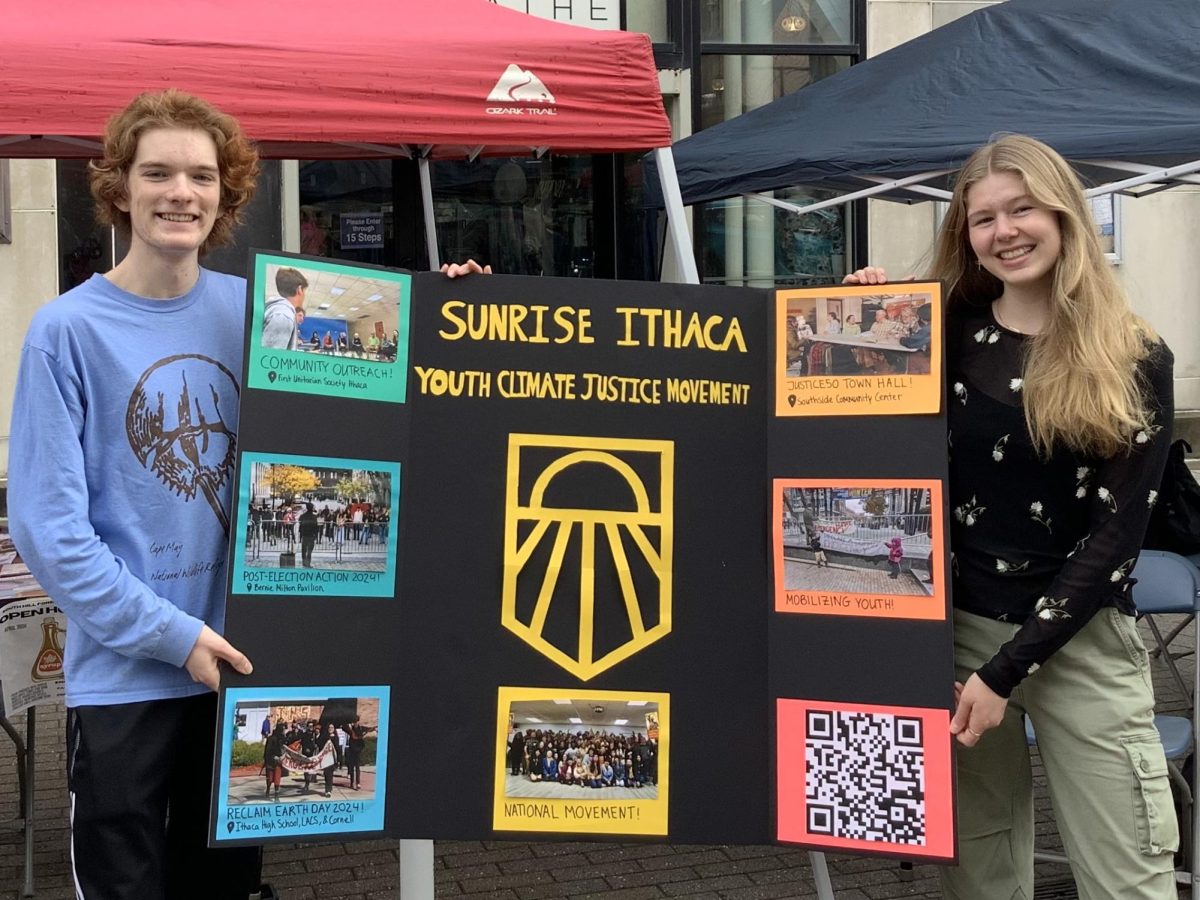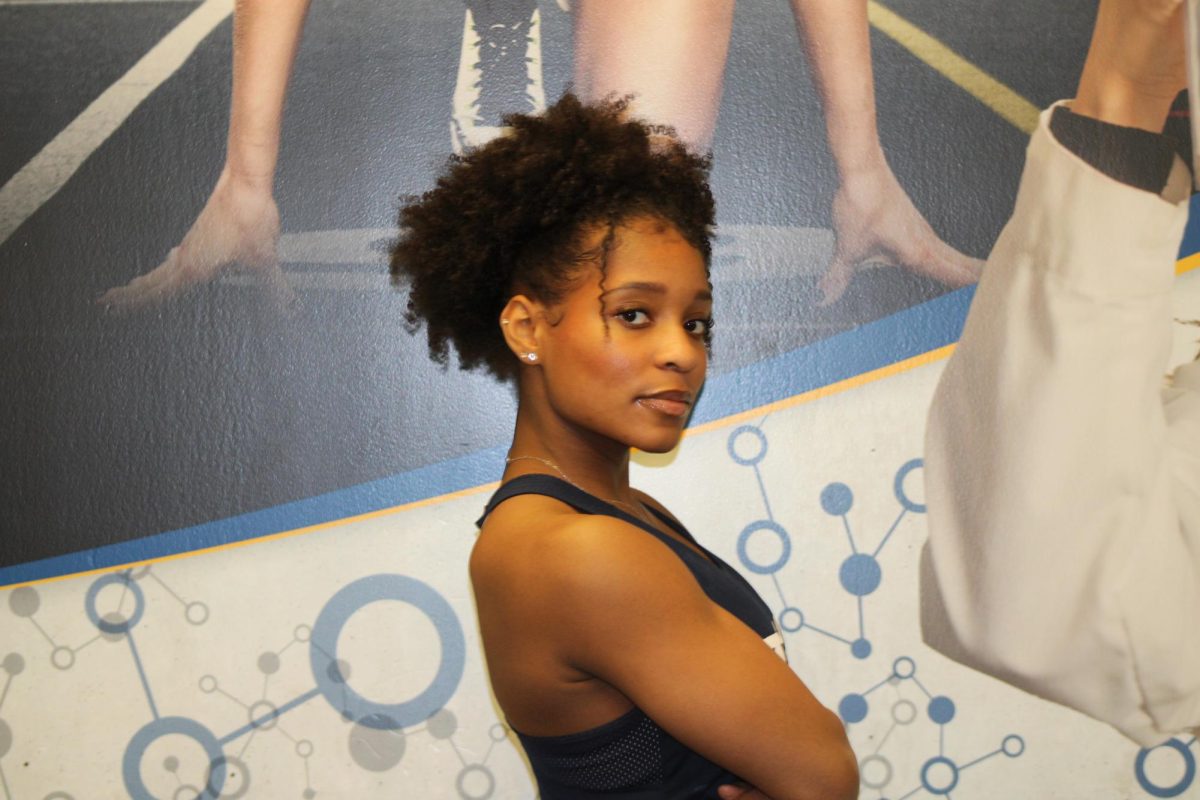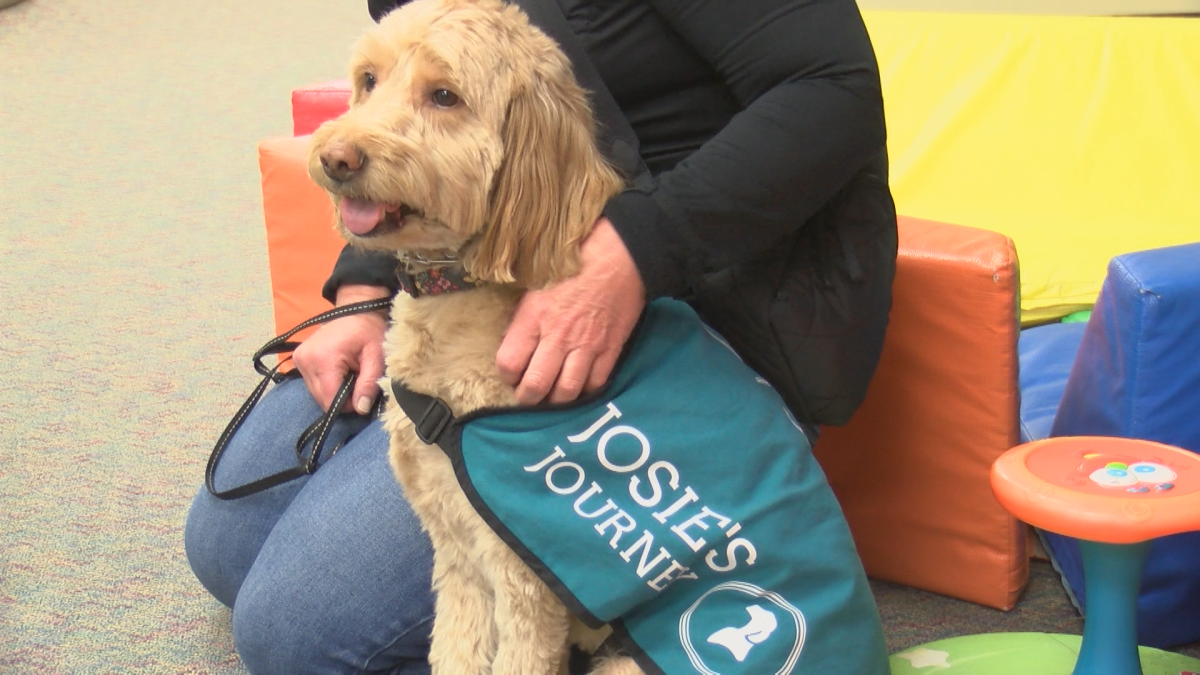History and mission of the league:
The ILWR has been a member of the Women’s Flat Track Derby Association since 2011. WFTDA represents more than 400 member leagues on six continents and sets international standards for competition. The ILWR has two adult teams, the SufferJets and the BlueStockings; as well as one youth team, the Title IXs.
Outside of skaters, the league has a myriad of volunteers and organizers behind it. Roller Derby is a sport, but also acts as a grassroots movement within the community.
“We engage the community and try to win new members and skating folks that we need,” a league member who goes by the derby name, ‘Sweets,’ said. “We need our skaters, officials, we need trainers, we need referees who are on skates.”
The ILWR practices and plays at The Shops at Ithaca Mall, with practices held twice a week. They also have frequent matches, known as bouts; some are held at home and for others, the league travels to surrounding cities. The location is a crucial part of the flat track aspect of the league, as flat track derby can be done on a variety of surfaces, like skating rinks, parking lots and basketball courts.
“This greatly reduces the capital needed to start up a roller derby league, and allows small groups of people to get a fledgling league off the ground,” the ILWR’s website states. “The DIY spirit that drives the sport allows roller derby leagues to create their own unique identities and adapt their structures to reflect their local communities.”
The ILWR is a registered 501(c)(3) nonprofit organization and works with other local organizations and sponsors in the community.
“Our league provides athletic opportunities for women and youth, and promotes the wellbeing of our region through charitable donations, volunteering, and community outreach for numerous community-oriented nonprofits and women-centered organizations,” the ILWR website states.
According to its website, since 2008, the ILWR has given nearly $15,000 to local organizations, as it donates a portion of the proceeds it makes at home bouts.

“Gluteus Cactimus,” a referee and non-skating official, said that the support seen between members on the track is also seen through the leagues engagement with the local community. They said the league has skated at Apple Fest in the past and does a trick or treat event at Halloween, among other community events.
“I think I really appreciate the roller derby’s commitment to having everyone be able to participate in whatever way they can,” Cactimus said. “Like we have a lot of people with disabilities that maybe they can’t play roller derby but they can do other things and still be involved in the league.”
Sammie Granison, who goes by the derby name “Gran Slam,” said the WFTDA has always been very accepting of the trans community and ensuring that trans and non-binary skaters are welcomed into the sport.
“In recent years, with the Olympics being sort of not great around inclusivity for trans and nonbinary and gender non-conforming people, WFTDA [and] derby [are] ideally, they are trying to be a place that is really accepting of it,” Granison said.
Benefits to members:
The ILWR works to engage with the local community, but has also created a community of members within the league itself.
“It’s the easiest way to find community wherever you go,” Sweets said. “So I started in Rochester, I moved down here and that was the first thing I did, join [in] Ithaca. I’m also moving to Richmond, Virginia at the end of the year, and I’ve already made contact with that league. So the easiest way to find community, to find friends, find groups so you don’t feel so alone.”
Granison said she became involved in the league as a part of her journey of discovering her queerness — “derby is a very queer sport” — and thrives in the supportive environment.
“There’s something about being noticed and recognized for your accomplishment, big or small, that happens here every day as part of every single practice, every move you make can be supported,” Granison said.

Mattea Lebeau, who goes by the derby name “Joni Bitchell,” said she’s also enjoying being able to grow with the community of skaters after having joined the league a year ago.
“It’s also really helped with body image issues for me, especially,” Lebeau said. “And I feel like my body has a different purpose and goals to work towards that is … helping create me as a better player. … It’s very rewarding and really hard. Not gonna lie, I’m usually someone who quits when I’m not good at something immediately. And this is impossible to be good at immediately. So I think it’s been a really great mental exercise to try and just persevere through this thing. And you have a community to do it with.”







